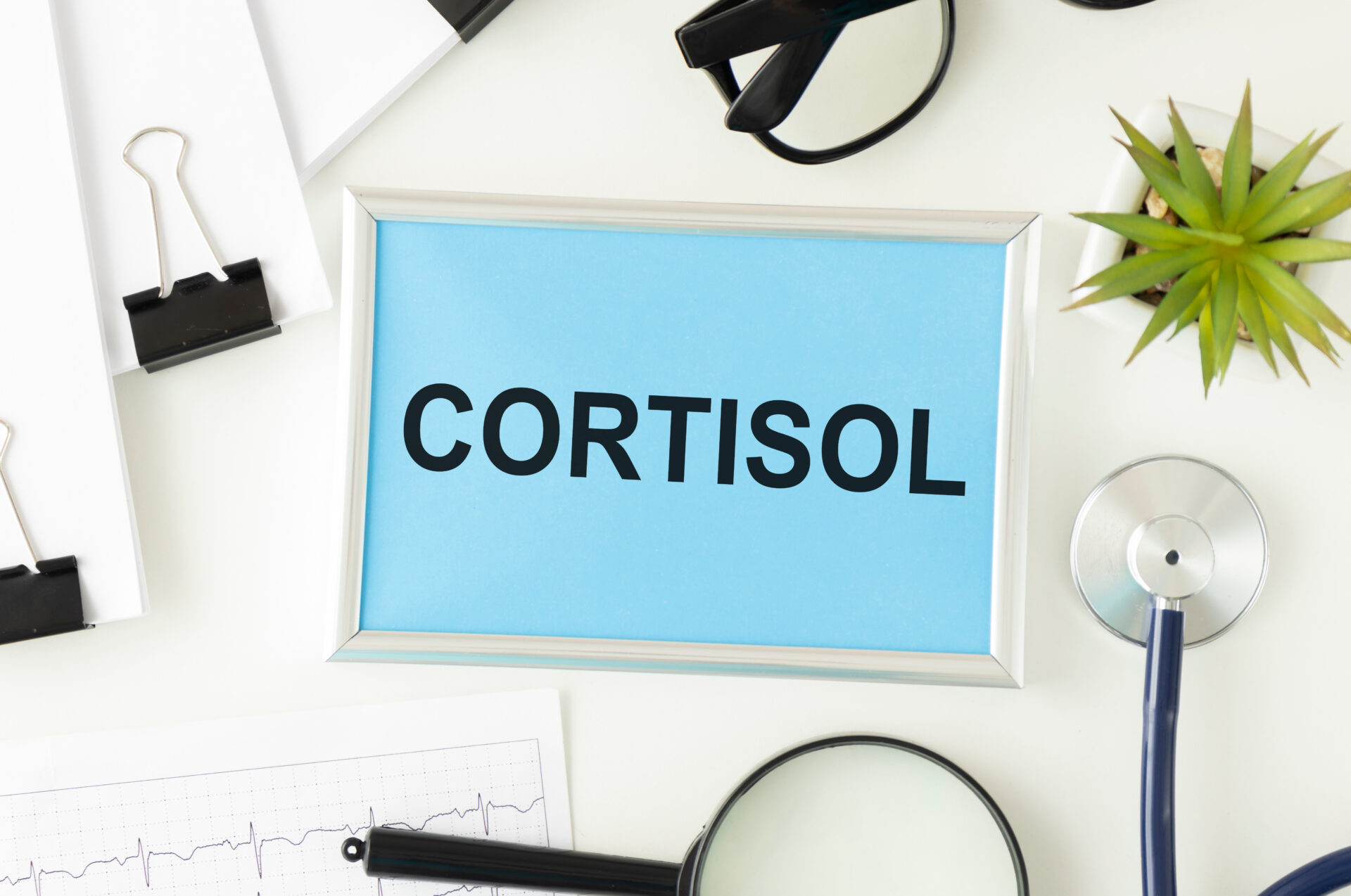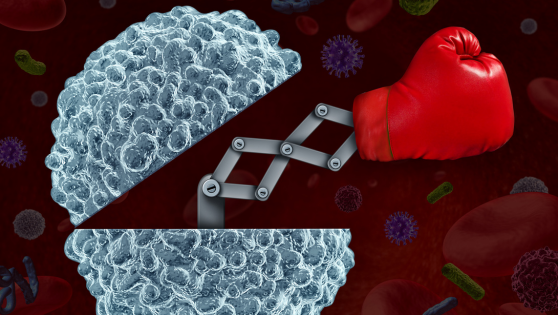Autoimmune diseases are a complex group of disorders where the body’s immune system mistakenly attacks its own healthy tissues and organs. While these conditions can affect various parts of the body, the liver often bears a significant burden. The liver, a vital organ responsible for detoxification, metabolism, and immune regulation, plays a crucial role in filtering and processing harmful substances from our blood.
In this blog post, we will explore the relationship between autoimmune diseases and the liver, emphasizing the importance of maintaining optimal liver health for individuals living with autoimmune conditions. Additionally, we will delve into the concept of “flares” in autoimmune diseases and their role in exacerbating liver-related issues.
Autoimmune Disease and Its Impact on the Liver
To understand the impact of autoimmune diseases on the liver, it is essential to first grasp the nature of autoimmune disorders. Autoimmune diseases occur when the immune system, designed to protect the body from external threats, mistakenly identifies its own healthy cells as foreign invaders. Consequently, the immune system launches an attack against these cells, leading to inflammation, tissue damage, and various symptoms.
When autoimmune diseases target the liver, they can disrupt its normal functioning, impeding its ability to detoxify the blood and produce essential proteins. This can result in liver damage, inflammation, and compromised overall liver health.
Importance of Maintaining Optimal Liver Health for Individuals with Autoimmune Conditions
For individuals living with autoimmune diseases, maintaining optimal liver health is of paramount importance. A healthy liver aids in detoxifying the body, regulating metabolism, and supporting the immune system. When the liver is compromised due to autoimmune attacks, its ability to perform these vital functions is diminished, leading to further health complications.
By prioritizing liver health, individuals with autoimmune conditions can potentially reduce the severity and frequency of flares and enhance their overall quality of life. Adopting lifestyle changes and medical interventions that support the liver can significantly contribute to managing autoimmune diseases more effectively.
Flares and Their Role in Exacerbating Liver-Related Issues
In the context of autoimmune diseases, “flares” refer to periods of heightened disease activity and symptoms. Flares are characterized by an escalation of inflammation and immune system activity, leading to a worsening of the condition. During flares, the liver may face increased stress due to the heightened immune response and inflammation, exacerbating existing liver-related issues.
Understanding the triggers and factors that contribute to flares is crucial for individuals with autoimmune liver diseases. Proper management and prevention of flares can help minimize liver damage and promote long-term liver health.
In the following sections of this blog post, we will explore strategies to optimize liver health and discuss ways to manage autoimmune liver diseases effectively.
Understanding Autoimmune Liver Diseases
Common Autoimmune Liver Diseases
Autoimmune liver diseases encompass a range of conditions in which the immune system mistakenly attacks the liver cells, leading to inflammation and damage. Some of the most prevalent autoimmune liver diseases include:
- Autoimmune Hepatitis (AIH): AIH is characterized by chronic inflammation of the liver caused by the immune system targeting liver cells. If left untreated, it can progress to cirrhosis, liver failure, or other complications.
- Primary Biliary Cholangitis (PBC): PBC primarily affects the small bile ducts in the liver, leading to their destruction and bile flow obstruction. This condition can lead to liver damage and, ultimately, cirrhosis.
- Primary Sclerosing Cholangitis (PSC): PSC involves inflammation and scarring of the bile ducts inside and outside the liver, leading to the narrowing and blockage of these ducts. It can result in liver damage and the need for a liver transplant in severe cases.
- Autoimmune Cholangitis: This condition shares similarities with PBC and PSC but lacks some specific features, making it a distinct autoimmune liver disease.
Mechanisms of Liver Damage in Autoimmune Conditions
The mechanisms by which autoimmune diseases inflict damage on the liver are multifaceted. When the immune system launches an attack on liver cells, several harmful processes occur:
- Inflammation: The immune system’s inflammatory response triggers the release of cytokines and immune cells, leading to swelling and damage to liver tissue.
- Autoantibodies: In autoimmune liver diseases, the immune system produces autoantibodies that target specific liver cells and structures, further contributing to liver damage.
- Fibrosis: Chronic inflammation can lead to the deposition of scar tissue (fibrosis) in the liver, impairing its function and potentially leading to cirrhosis.
- Bile Duct Damage: In diseases like PBC and PSC, the bile ducts are specifically targeted, causing obstruction, bile buildup, and injury to liver cells.
How Liver Health Affects Overall Autoimmune Disease Management
Optimal liver health plays a crucial role in managing autoimmune diseases effectively. As the liver serves as the body’s primary detoxification organ, any impairment can exacerbate the effects of autoimmune flares. A healthy liver efficiently processes and removes toxins, aiding in the reduction of overall inflammation and preventing potential triggers for autoimmune responses.
Moreover, the liver is involved in the metabolism of drugs and medications used to manage autoimmune diseases. A compromised liver may struggle to break down these medications properly, affecting their efficacy and potentially leading to adverse effects.
Individuals with autoimmune conditions should be vigilant about their liver health to prevent disease progression and flares. By adopting a liver-friendly lifestyle, such as maintaining a balanced diet, avoiding excessive alcohol consumption, and staying physically active, they can bolster their liver’s resilience and support its role in overall autoimmune disease management.
Below we will delve into the concept of flares in autoimmune liver diseases, exploring triggers, symptoms, and strategies for minimizing their impact on liver health. Additionally, we will discuss various ways to optimize liver health and promote a harmonious coexistence with autoimmune conditions.
Flares in Autoimmune Liver Diseases
Definition and Characteristics of Flares in Autoimmune Liver Diseases
Flares in autoimmune liver diseases refer to episodes of increased disease activity and inflammation in the liver. During flares, the immune system intensifies its attack on liver cells, leading to a worsening of liver-related symptoms and potential complications. Flares can vary in intensity and duration, ranging from mild exacerbations to severe and life-threatening events.
The characteristics of flares may include:
- Increased Liver Enzyme Levels: Flares often result in elevated liver enzyme levels in blood tests, indicating liver inflammation and damage.
- Fatigue and Malaise: Individuals experiencing liver flares may report increased fatigue and a general feeling of unwellness.
- Abdominal Pain: Flares can cause abdominal discomfort or pain in the upper right quadrant due to liver inflammation.
- Jaundice: In some cases, liver flares can lead to jaundice, characterized by yellowing of the skin and eyes, indicating impaired liver function.
- Itchiness: Flares may cause itching (pruritus) due to impaired bile flow and accumulation of bile salts.
Triggers and Factors That Contribute to Flares
Several triggers and factors can contribute to the occurrence of flares in autoimmune liver diseases:
- Non-Adherence to Medication: Inconsistent use of prescribed immunosuppressive medications can lead to an immune system resurgence and flares.
- Infections: Viral or bacterial infections can trigger an immune response, potentially leading to flares.
- Stress: Heightened stress levels may worsen autoimmune responses and contribute to liver flares.
- Dietary Factors: Certain foods and dietary habits, particularly alcohol consumption, can aggravate liver inflammation and contribute to flares.
- Medication Interactions: The combination of certain medications can impact the liver’s ability to metabolize drugs, leading to flares.
- Hormonal Changes: Hormonal fluctuations, such as those occurring during pregnancy or menopause, can influence autoimmune activity and liver function.
Recognizing the Symptoms of Liver Flares and Differentiating Them from General Autoimmune Flares
Recognizing liver flares and distinguishing them from general autoimmune flares is crucial for timely intervention and appropriate management. While some symptoms may overlap, specific liver-related indicators can help differentiate liver flares:
- Liver-Specific Symptoms: Symptoms like jaundice, itching, and right upper quadrant abdominal pain are more indicative of liver involvement in flares.
- Blood Test Results: Monitoring liver enzyme levels through blood tests can provide insight into liver inflammation and flare activity.
- Comprehensive Assessment: Healthcare providers consider a patient’s medical history, symptoms, and physical examination to determine if liver flares are present.
- Imaging Studies: Imaging techniques, such as ultrasound or MRI, can reveal liver abnormalities and aid in diagnosing flares.
- Timely Consultation: Promptly consulting a healthcare professional during flare episodes can lead to accurate diagnosis and appropriate management.
By understanding the triggers and recognizing the specific symptoms of liver flares, individuals with autoimmune liver diseases can work with their healthcare providers to implement strategies that minimize the impact of flares on liver health. In the following sections, we will explore practical approaches to optimize liver health and manage flares effectively, ensuring better outcomes and improved quality of life for those living with autoimmune liver diseases.
4 Strategies to Optimize Liver Health for Autoimmune Disease
Diet and Nutrition
Foods to Include and Avoid for Liver Health:
- Inclusion of antioxidant-rich foods: Fruits and vegetables can help neutralize harmful free radicals and reduce liver inflammation.
- Healthy fats: Consuming omega-3 fatty acids found in fish, flaxseeds, and walnuts may support liver function.
- Limited saturated fats and trans fats: Reducing intake of processed foods, fried items, and fatty meats can ease the burden on the liver.
- Moderate protein consumption: Incorporating lean protein sources, such as poultry, beans, and legumes, can assist in liver repair.
- Importance of a Balanced Diet in Managing Autoimmune Liver Diseases: A balanced diet can contribute to overall well-being and aid in managing autoimmune liver diseases by supporting liver function and reducing inflammation. Maintaining a balanced diet helps manage body weight and decreases the risk of conditions that can exacerbate liver issues.
Regular Exercise and Physical Activity
- Benefits of Exercise for Liver Function and Overall Well-being: Engaging in regular physical activity improves blood circulation, which benefits the liver by enhancing its detoxification capabilities. Exercise also aids in weight management and reduces insulin resistance, both of which are important for liver health.
- Appropriate Exercise Routines for Individuals with Autoimmune Diseases: Individuals with autoimmune liver diseases should engage in exercises suitable for their physical condition. Low-impact activities like walking, swimming, or yoga can provide benefits without putting excessive strain on the liver. Consulting with healthcare providers and fitness professionals can help design personalized exercise routines.
Medication and Treatment Compliance
- Role of Immunosuppressive Drugs in Managing Liver-Related Flares: Immunosuppressive medications help control the immune system’s activity and reduce inflammation in autoimmune liver diseases. By dampening the immune response, these drugs aim to alleviate liver damage and minimize the risk of flares.
- Importance of Adhering to Prescribed Treatment Plans: Consistent adherence to prescribed medication regimens is crucial for managing autoimmune liver diseases effectively. Skipping or altering doses can lead to uncontrolled immune activity, increasing the likelihood of liver flares and disease progression.
Managing Stress and Mental Health
- Impact of Stress on Autoimmune Flares and Liver Health: Stress can trigger and exacerbate autoimmune responses, leading to liver flares and worsening of symptoms. Managing stress is essential for maintaining overall well-being, including liver health.
- Stress-Reduction Techniques and Their Significance in Disease Management: Employing stress-reduction techniques such as mindfulness, meditation, yoga, and deep breathing can help mitigate the impact of stress on autoimmune liver diseases. Engaging in enjoyable activities, seeking social support, and counseling may also positively influence mental health and immune function.
By incorporating these strategies into their daily lives, individuals with autoimmune liver diseases can take proactive steps to optimize their liver health and manage flares more effectively. Emphasizing the importance of a holistic approach, encompassing diet, exercise, medication adherence, and stress management, can significantly contribute to a better quality of life for those living with autoimmune liver conditions.
Seeking Medical Support
The Importance of Regular Check-ups and Monitoring Liver Function
Regular check-ups and monitoring of liver function are essential for individuals with autoimmune liver diseases. Scheduled visits to healthcare providers allow for the early detection of any changes in liver health, ensuring timely intervention and preventing potential complications. Through blood tests and imaging studies, healthcare professionals can assess liver enzyme levels, liver size, and overall liver function. Close monitoring enables healthcare providers to tailor treatment plans and make necessary adjustments to manage autoimmune liver diseases effectively.
Working Closely with Healthcare Providers to Optimize Liver Health
Collaboration between individuals with autoimmune liver diseases and their healthcare providers is vital for optimizing liver health. By maintaining open communication, patients can share any changes in symptoms or concerns they may have. Healthcare providers, in turn, can offer guidance on lifestyle modifications, medication management, and appropriate interventions to support liver function. Regular discussions about treatment efficacy and potential side effects of medications allow for personalized care and better disease management.
Addressing Concerns and Seeking Prompt Medical Attention During Flares
During flare episodes, it is crucial for individuals with autoimmune liver diseases to be vigilant about their symptoms and promptly seek medical attention when necessary. Recognizing the signs of liver flares, such as jaundice, increased abdominal pain, or changes in blood test results, is essential. Early medical intervention can help prevent liver damage and complications associated with severe flares. Consulting healthcare providers during flares enables them to assess the severity of the situation, adjust medications if needed, and provide guidance on managing symptoms effectively.
In cases of severe flares or when symptoms worsen rapidly, seeking immediate medical attention, such as going to the emergency department, may be necessary. Timely interventions can prevent life-threatening situations and ensure appropriate care is administered promptly.
Seeking medical support and establishing a strong partnership with healthcare providers are integral to managing autoimmune liver diseases. Regular check-ups, monitoring liver function, and open communication facilitate optimal liver health management. Additionally, recognizing flare symptoms and promptly seeking medical attention during exacerbations are critical for minimizing liver damage and enhancing overall well-being. By actively participating in their healthcare journey and following medical advice, individuals with autoimmune liver diseases can work towards better liver health and an improved quality of life.
Lifestyle Modifications to Prevent Flares
Limiting Alcohol Consumption and Its Impact on the Liver
For individuals with autoimmune liver diseases, limiting alcohol consumption is crucial to prevent flares and minimize liver damage. Alcohol is processed in the liver, and excessive or chronic alcohol intake can lead to inflammation, fatty liver disease, and liver cell injury. In the presence of autoimmune liver diseases, alcohol can further exacerbate liver inflammation and compromise the liver’s ability to function properly. Therefore, it is advisable to avoid or strictly limit alcohol intake to promote liver health and reduce the risk of flares.
Avoiding Exposure to Toxins and Environmental Triggers
Exposure to toxins and environmental triggers can contribute to liver inflammation and trigger autoimmune responses in susceptible individuals. To reduce the risk of flares, it is essential to avoid or minimize exposure to harmful substances. This includes avoiding smoking and secondhand smoke, which can be detrimental to the liver and overall health. Additionally, limiting exposure to chemicals, pollutants, and pesticides can help protect the liver from unnecessary stress and inflammation. Adopting a cautious approach to environmental hazards can support liver health and prevent potential flare triggers.
Ensuring Sufficient Rest and Quality Sleep for Optimal Liver Function
Adequate rest and quality sleep are essential for the body’s overall health and well-being, including liver function. During sleep, the body undergoes processes of repair and regeneration, which are vital for optimal liver function. Chronic sleep deprivation and poor sleep quality can lead to increased inflammation and negatively impact immune responses, potentially contributing to liver flares. Therefore, establishing healthy sleep habits, such as maintaining a regular sleep schedule and creating a relaxing bedtime routine, is beneficial for individuals with autoimmune liver diseases. Prioritizing restful sleep can support the liver’s ability to cope with the challenges posed by autoimmune conditions and reduce the risk of flares.
By incorporating these lifestyle modifications into their daily routines, individuals with autoimmune liver diseases can take proactive steps to prevent flares and promote liver health. Limiting alcohol consumption, avoiding harmful environmental triggers, and ensuring sufficient rest all contribute to a comprehensive approach to managing autoimmune liver diseases effectively. These lifestyle changes, when combined with medical treatment and regular monitoring, can significantly improve the overall well-being and quality of life for individuals living with autoimmune liver conditions.
Supportive Therapies and Alternative Approaches
Herbal Supplements and Their Potential Benefits for Liver Health
Herbal supplements have been used for centuries in traditional medicine systems to support liver health. Some herbal remedies may offer potential benefits for individuals with autoimmune liver diseases:
- Milk Thistle: Milk thistle contains an active compound called silymarin, which is believed to have antioxidant and anti-inflammatory properties that may protect liver cells and promote liver regeneration.
- Turmeric: Curcumin, the main component of turmeric, has shown anti-inflammatory effects that could benefit the liver by reducing inflammation and oxidative stress.
- Artichoke: Artichoke extract may support liver function by aiding bile flow and promoting liver detoxification.
While some herbal supplements may have promising effects on liver health, it is essential to exercise caution. Herbal remedies can interact with medications or exacerbate certain conditions. Before incorporating any herbal supplement into their routine, individuals should consult their healthcare providers to ensure safety and effectiveness.
Acupuncture and Its Role in Managing Autoimmune Liver Disease Flares
Acupuncture, an ancient Chinese healing practice, involves the insertion of fine needles into specific points on the body to stimulate energy flow and restore balance. Some studies suggest that acupuncture may have potential benefits for individuals with autoimmune liver diseases:
- Pain Management: Acupuncture has been shown to help manage abdominal pain and discomfort associated with liver inflammation, providing relief during flares.
- Stress Reduction: Acupuncture sessions can promote relaxation and reduce stress, which is crucial for individuals with autoimmune conditions, as stress can exacerbate flares.
- Immune Modulation: Acupuncture may influence the immune system, helping to regulate immune responses and potentially reducing autoimmune activity.
However, acupuncture should not be considered a standalone treatment for autoimmune liver diseases. Instead, it can be used as a complementary therapy alongside conventional medical treatments. Individuals interested in trying acupuncture should discuss it with their healthcare providers to ensure it aligns with their overall treatment plan.
Exploring Complementary Therapies with Medical Guidance
While herbal supplements and acupuncture hold promise as supportive therapies, it is essential to explore complementary approaches under medical supervision. Each individual’s condition is unique, and what works for one person may not be suitable for another. Integrative medicine, which combines conventional treatments with evidence-based complementary therapies, offers a holistic approach to managing autoimmune liver diseases.
Before adopting any alternative approach, individuals should consult their healthcare providers to ensure compatibility with their current treatment plan. Open communication with healthcare professionals allows for informed decision-making and the identification of safe and effective complementary therapies.
Supportive therapies and alternative approaches, such as herbal supplements and acupuncture, can complement conventional treatments in managing autoimmune liver diseases. These approaches may offer potential benefits for liver health and overall well-being when used responsibly and in conjunction with medical guidance. By embracing an integrative approach to healthcare, individuals can explore additional avenues for optimizing liver health and managing flares more effectively.
The Importance of Liver Health in Autoimmune Disease Management
Optimal liver health plays a pivotal role in managing autoimmune diseases effectively. The liver serves as a vital organ responsible for detoxification, metabolism, and immune regulation. In the context of autoimmune liver diseases, maintaining liver health becomes even more critical as the immune system mistakenly attacks liver cells, leading to inflammation and potential liver damage. Flares in autoimmune liver diseases can exacerbate symptoms and pose serious risks to overall health.
For individuals living with autoimmune liver diseases, taking proactive steps to support liver function is crucial in preventing flares and improving overall well-being. Embracing a healthy lifestyle that includes a balanced diet, regular exercise, adequate rest, and stress management can significantly contribute to optimizing liver health. Additionally, adhering to prescribed medications and treatment plans is essential for controlling autoimmune activity and minimizing liver-related flares. By being actively involved in their healthcare journey, individuals can positively impact their liver health and enhance disease management outcomes.
While lifestyle modifications and complementary therapies can be beneficial, it is essential to remember that autoimmune liver diseases require medical supervision and care. Working closely with healthcare providers allows for personalized treatment plans, regular monitoring of liver function, and timely interventions during flares. Seeking professional advice before incorporating any alternative approach, such as herbal supplements or acupuncture, ensures their safety and compatibility with conventional treatments.
In conclusion, maintaining optimal liver health is a crucial aspect of managing autoimmune liver diseases. By prioritizing liver health, taking proactive measures, and collaborating with healthcare professionals, individuals can navigate life with autoimmune conditions more effectively. With a comprehensive approach that combines lifestyle modifications, medical treatments, and supportive therapies, individuals can promote liver health, minimize flares, and improve their overall quality of life. Remember, a healthy liver is the cornerstone of well-being for individuals living with autoimmune liver diseases.
If you are looking for more tips and support, join me over on my group page, The Village – A Natural HEALing Community, to get tons of information and tips to help you take your HEALTHY EATING and ACTIVE LIVING to the next level.
REFERENCES:
- Mayo Clinic Staff. (2021, June 17). Autoimmune diseases. Mayo Clinic. https://www.mayoclinic.org/diseases-conditions/autoimmune-diseases/symptoms-causes/syc-203
- National Institute of Diabetes and Digestive and Kidney Diseases. (2012). LiverTox: Clinical and Research Information on Drug-Induced Liver Injury. https://www.ncbi.nlm.nih.gov/books/NBK548741/
- National Center for Complementary and Integrative Health. (2021, April). Milk Thistle. https://www.nccih.nih.gov/health/milk-thistle
- Vazirian, M., Mozaffarpur, S. A., Jafari, S. A., & Zamani, Z. (2020). The effects of curcumin supplementation on liver function in patients with non-alcoholic fatty liver disease: a randomized, double-blind, placebo-controlled trial. Acta Gastro-Enterologica Belgica, 83(3), 363–368. https://www.ncbi.nlm.nih.gov/pubmed/33090640
- Roman, R. (2017). Herbal Medicine for Liver Disease: A Review. Current Hepatology Reports, 16(3), 175–182. https://doi.org/10.1007/s11901-017-0364-3
- National Center for Complementary and Integrative Health. (2021, August 1). Acupuncture: In Depth. https://www.nccih.nih.gov/health/acupuncture-in-depth
- Ochoa-Sangrador, C., Arranz, M., & Recio, J. M. (2014). Complementary and alternative medicine in paediatrics: A systematic review. The European Journal of Pediatrics, 173(3), 267–274. https://doi.org/10.1007/s00431-013-2182-9
MORE RELATED POSTS:











+leave a comment . . .